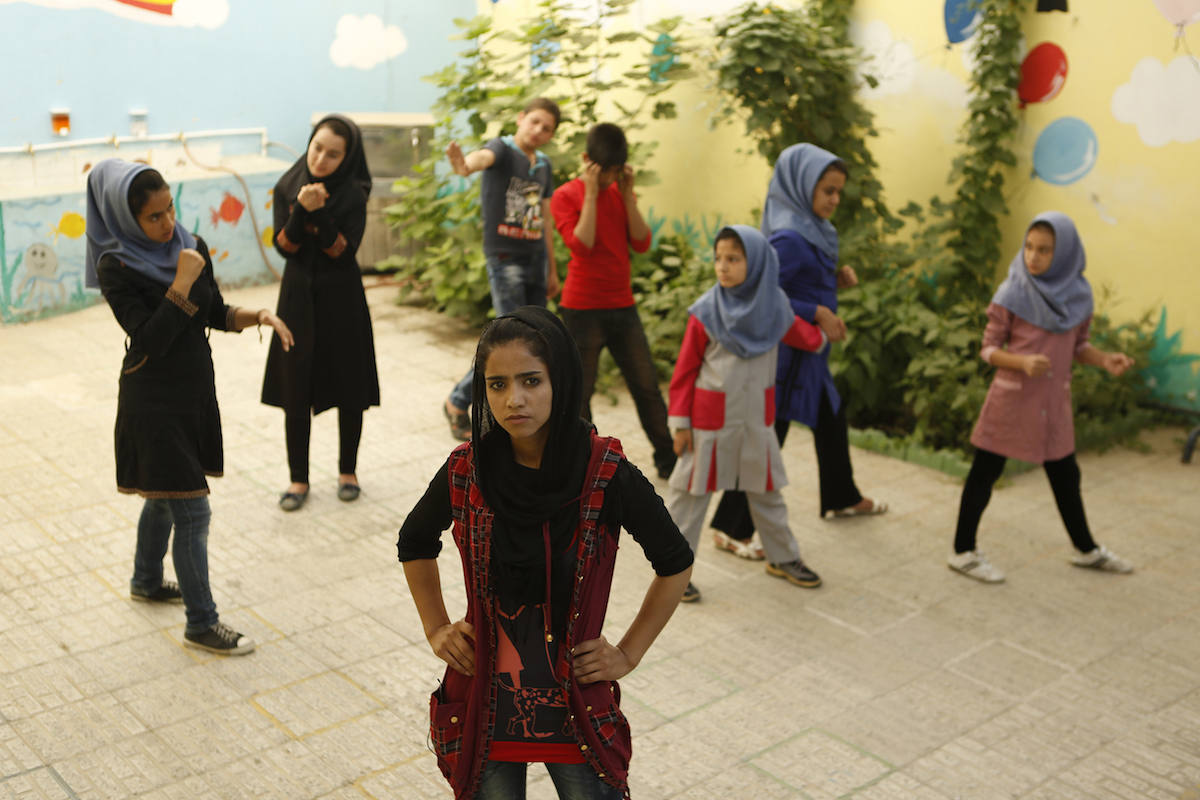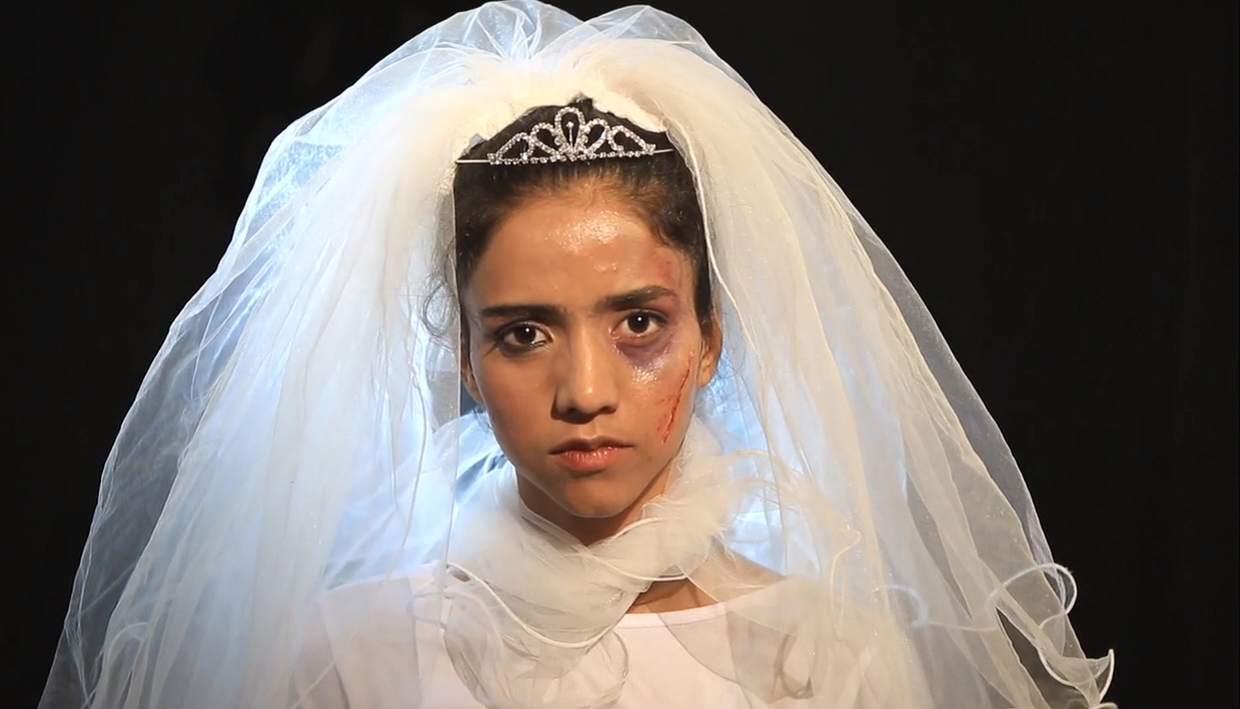There’s a scene in the new documentary Sonita where a teenage girl shows a rap song she wrote to one of her friends. The friend is moved to tears by the lyrics. When asked why, the friend replies: “That’s exactly what I would like to tell my father.”
The teen rapper is Sonita Alizadeh, an undocumented Afghan refugee living in Iran. Her heartfelt lyrics about young women in Iran and Afghanistan, who are essentially sold as teenage brides, are a middle finger raised to the society in which she lives. “We don’t have price tags like sheep,” she says to a friend.
The hard-hitting documentary, made by Rokhsareh Ghaemmaghami, is an intimate portrait of a rebellious and, at times, fearless teen facing a brutal reality. It’s about being a teenage girl with big dreams, sure, but it’s about having those dreams in Iran. Which, if you know anything about Iran, is not easy. There are strict rules about women singing alone; and to record, you need special permission from the government. To make matters worse for Sonita, her mum shows up intending to take her back to Afghanistan to sell her as a bride. Naturally Sonita turns to the filmmaker for help. But should Ghaemmaghami interfere? And what will happen to Sonita if she doesn’t?
How did you discover Sonita and her extraordinary story?
I met Sonita through my cousin, who is a social worker at an organisation for supporting child labourers and street children. She originally introduced Sonita to me to see if I could do anything for her, to help her with her music. Sonita – who was about 16 at the time – had recorded a rap song and edited a music video but shot it with a mobile phone and done things by herself. My cousin wanted to know if I could introduce her to musicians, and so I decided to help her because I was touched by the work she did.
Did you see any hope for her as a young female rapper in Iran?
Well, little by little, knowing more about her, I became more interested in her story. But in terms of making a documentary, her story was dark, because I couldn’t see any hope for her. I tried many times to get her documents in Iran and I failed. I began to lose hope.
She loves Rihanna but her raps are more about growing up as a young woman in Iran and Afghanistan. Did she always want her music to help change things for young women?
She said the first time she heard rap music she realised that this was what she wanted to do. Because she had a lot to say and with so many words in rap, she could tell these stories. She is from a community where they have no voice. Even though there are three million Afghans in Iran, they are so segregated. And Afghan women are not in the society; living in Iran, they are locked in their rooms, they can’t go out and talk to people. So she wanted to tell her story, she wanted to bring change to her community, but first of all she needed to talk. She wanted to be heard.
I hadn’t heard of any female rappers in Iran. Is it impossible to be a female rapper there?
We have many female rappers but they usually live outside Iran. The thing in Iran is that a female singer can’t work freely and they can’t record or have a concert. There is a big underground music scene because most forms of modern music are forbidden, even for men – rock music, rap music, anything that is considered more Western. These are not legal, but I’ve never heard of anybody being killed because of that. You just can’t broadcast it, you can’t publish your album in Iran, you can’t have a concert, but many people just record it and put it online or broadcast it from satellites outside of Iran.

In the film, we see how hard it is for Sonita to record solo; that is, without a male co-singer.
So there are some weird rules that a woman can sing [in an official recording, with government permission] only if she’s singing with a man.
Sonita gets a scholarship to America and eventually gets to move there. Has she seen her family since?
She has seen them on Skype. She sends them money and supports them a lot. Her mother doesn’t have to work anymore. All those kids are going to school, because they couldn’t go to school before. So she is supporting them. They are happy and they are proud of her.
So there’s no sense of shame?
She knows how to appear in the media to make them proud. She’s always wearing traditional clothes in America. Channel 4, BBC – she is always with traditional cover. She thinks that if she looks like a girl who was covered, with clothes that are accepted by her community, she can send her message better than if she looks like a western girl. It would be more difficult for them to listen to her. She’s rapping about these issues and she keeps her appearance respectful.
Has she not been back home at all?
No.
Is she scared to return?
No, but I don’t think she has a chance at the moment. Because she’s never been in a real school in her life and now she has to study in English. It’s very difficult. Suddenly going to a high school in another language, without being in a school at all. Everything is difficult and it’s a big challenge for her. But she wants to go back to visit. She wants to go back to bring change.
Credits
Text Oliver Lunn
